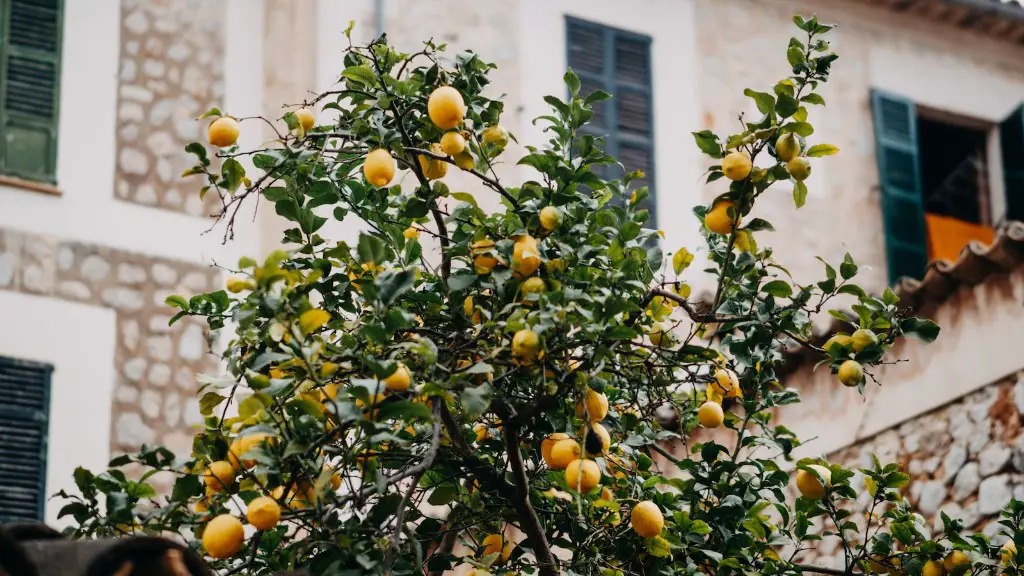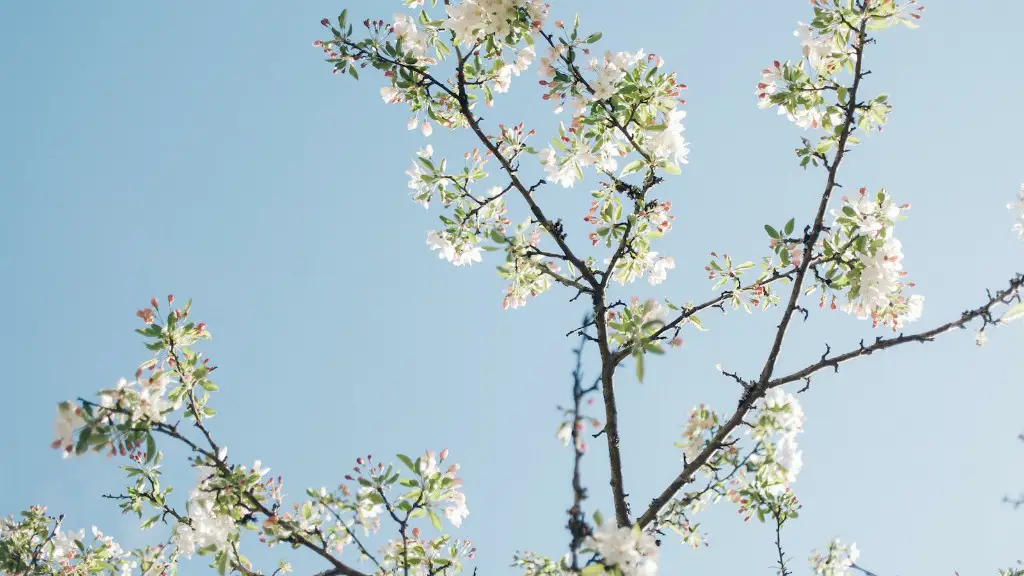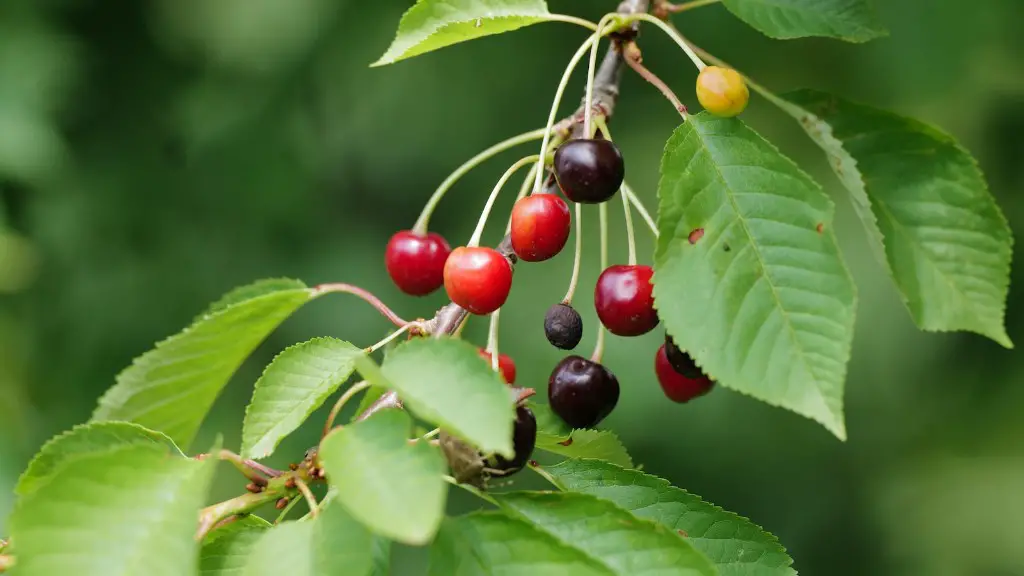The question of when to expect lemons from a new planting can be vexing. While harvesting lemons from a young tree isn’t as straightforward as buying them from the market, with a little patience and proper care, it’s possible to enjoy your own home-grown lemons soon. Lemon trees can take two to three years before they can produce harvest-sized fruit. Here are some tips to help ensure that you enjoy the fruits of your labor in no time:
First, it’s important to select the right variety. Lemon trees vary in their harvest times, with some ready to bear fruit in as little as a year or two. Make sure you know the details about the trees you are buying and which ones take less time to begin harvesting. Generally, dwarf varieties are one of the earliest trees to produce fruit.
Second, when you bring your lemon tree home, read up on its ideal cultural requirements. Proper site selection, soil preparation, and watering are key elements to successfully nurturing a productive tree. Make sure the tree is receiving full sun and is planted in well-prepared, sandy, or loamy soil. Make sure to irrigate frequently and thoroughly, especially during dry spells.
Third, as the tree grows, prune it away to support its structure. Pruning helps maintain the desired tree shape while promoting an open canopy. Also make sure to use a guide line, such as a garden hose, to create the desired, upright shape. Remove dead, dying, and diseased branches. Avoid over-pruning, as it can delay the onset of flowering and fruiting.
Fourth, fertilizing is a must. An optimal fertilization regime will optimize your tree’s performance. Use a wide variety of fertilizers, such as nitrogen, potassium, magnesium, and phosphorus. Remember to apply these treatments a few times during the flowering season and allow them to soak in deeply.
Fifth, Regularly inspect for pests and diseases. Make sure to monitor for aphids, mites, and other common threats. Remove and discard any infested fruit or leaves. Take measures quickly and apply timely and effective treatment to maintain the tree’s health.
Finally, when the time comes, it’s important to know when and how to harvest the fruit. To maximize quality and avoid from rotting, wait until the lemons are yellow-orange before picking them. Use a knife to cut the lemon slice off the tree. Once the fruit has been picked, keep it in a cool, dark place to protect and prolong its shelf life.
Planting Tips
When planting your lemon tree, it’s important to select a high-quality specimen and to site it properly. Make sure to choose a site with well-draining soil, full sun, and plenty of room for your tree to grow. If you’re planting several trees, allow at least eight feet between each one. When working the soil, mix in plenty of compost to provide nutrients and encourage healthy root growth.
Once planted, provide support such as stakes and pruning ties. They can help the young tree stand strong against strong winds and help anchor it to the ground. Also consider wrapping the trunk in a tree guard to protect it from rodent and bug damage. After planting, water the soil slowly and deeply to encourage strong root growth.
Nurturing Young Trees
Young lemon trees need extra attention and must be frequently watered and fertilized. Watering your tree deeply and regularly helps to keep the soil moist, encourages root growth, and helps to provide vital nutrients. Consider an irrigation system to properly water the tree, as this helps to ensure that the water penetrates deep into the soil and helps to avoid damaging the roots. Make sure to check for proper drainage as well.
It is also beneficial to fertilize your lemon tree in its early years. Feeding your tree helps it to form strong and healthy roots. Use organic or slow-release fertilizers for best results. Consider using citrus fertilizer for a quick boost, as it helps to provide essential nutrients such as nitrogen and potassium. Spread the fertilizer in a circle around the tree and water it in thoroughly.
Citrus Guarantees
Before buying, make sure to ask your nursery professional about any citrus guarantees that they may offer. This can protect you in the event that your tree fails to produce fruit, dies early, or produces too little fruit. It’s important to know what your guarantee covers and how to use it in case of any issues.
Also look out for nurseries that offer certified seedlings. The certification process involves testing the seedlings for any possible genetic defects. With certified seedlings, the chances of successfully producing fruit is greatly improved.
Protecting Your Trees
It is vital to protect your trees from pests and diseases. Citrus trees are also vulnerable to what is known as ‘root knot’, which affects the developing fruits. To help protect your trees from disease, practice general good garden hygiene such as removing any fallen or diseased fruit or leaves, as this can encourage the spread of pests and diseases. Using natural or organic pesticides is another way to help to protect the tree.
In addition, be sure to monitor your trees for any signs of distress, such as wilting leaves or discolored fruit. If you find any such symptoms, take steps to correct the problem before it becomes more serious. If you can’t celebrate the lemons from your tree yourself, one of the best things you can do is share the harvest with family and friends.
Conclusion
With proper care, patience, and a little bit of luck, you can harvest juicy and fragrant lemons from your own tree. The key is in selecting the right variety, site selection, soil preparation, and good care. Make sure to follow steps such as choosing a high-quality specimen, providing support and fertilizers, and protecting from pests and diseases. Enjoy the fruits of your labor, and don’t forget to share with family and friends!



